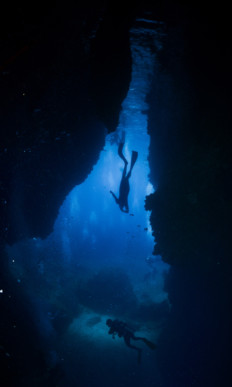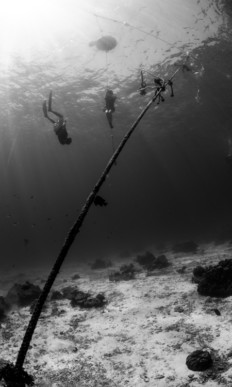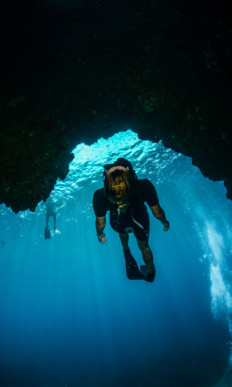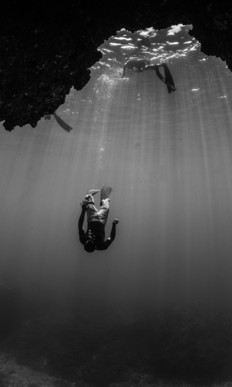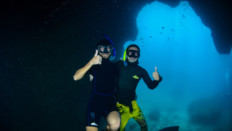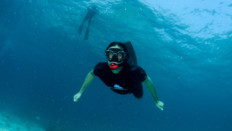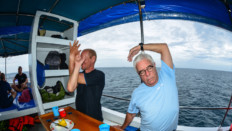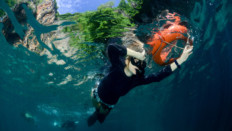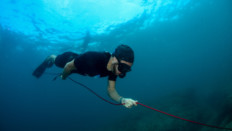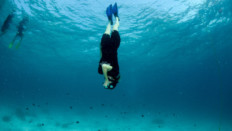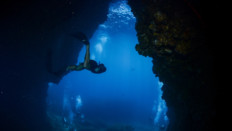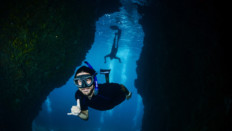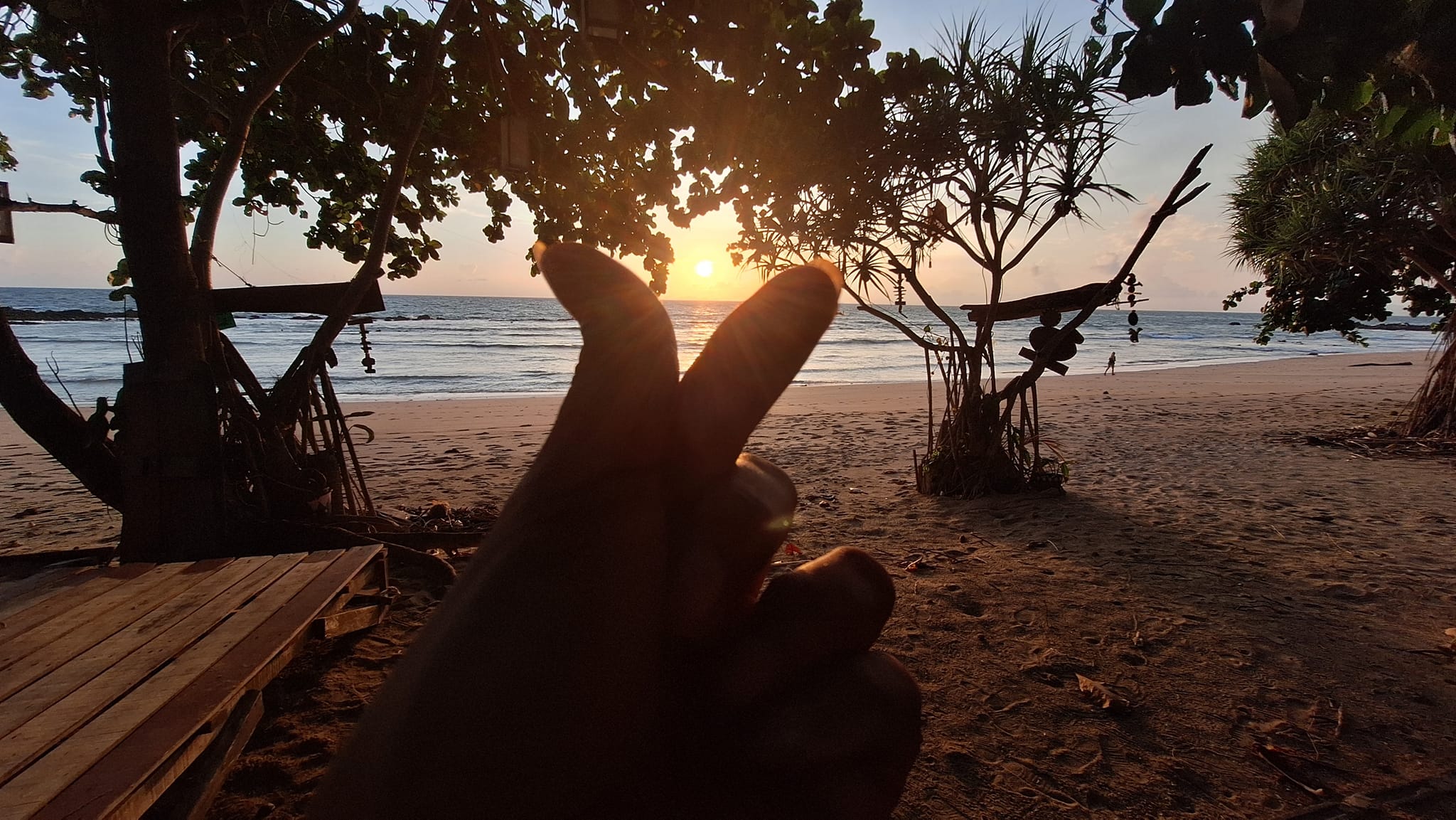
Freediving, an activity ancient as humanity itself.
More than any other sport, freediving culture is based on the subconscious reflexes written in Homo sapiens genome.
Freediving culture
"bit of history"
From the moment of conception, human embryo lives in an aquatic environment that is very similar to seawater. When it is born, if submerged under the water, human infant will instinctively hold its breath for up to 40 seconds while making swimming movements. However in freediving culture, it looks like that we lose this innate ability as soon as we begin to walk. Waking up these natural reflexes is one of the most important elements of freediving. As a consequence, it will allow the freediver to be better protected at large depths.
Apnea, greekology freedom
The word Apnea derives from the Greek word “apnoia”, which literally means “without breathing”. Although the origin of this freediving culture word isn’t connected to water. In modern athletic terminology “Apnea” has become a synonym for freediving. It is translated to diving on one breath of air and without the use of equipment that would make it possible to breathe underwater. Therefore, “Apnea” has put together a comprehensive and very detailed yet very involving reading about the history of Apnea and freediving itself. Find some time to get to know freediving and its history by following this link.
Learn Freedive culture with our skilled instructor
I love being underwater or long distance swimming. Firstly, I taught swimming to beginners, trained people to improve their stroke technique. As a passion, I have been teaching freediving for the past four years. Most importantly, I really don’t care how deep you will go or how long you will stay, as long as you enjoy your time underwater. Only after experiencing that enjoyment, you will surprise yourself at how deep you’ve gone and how long you’ve stayed.
Recognizing & Releasing Anxiety
For me, freediving involves a lot of things but I particularly like the process of recognizing and releasing anxiety (especially the tension of needing air!). However, other stresses in life are more complex, but I’ve found certain aspects of freediving to be a useful approach for dealing with them and calming down.
Increase your performances
Training up and down a descent line or back and forth lengths of the pool might be a bit meticulous, even boring sometimes, but you might end up finding it hypnotic. You might even become addicted to the physical challenge. In fact, I’ve helped send people on their way to national records.
Great & fun diving
Next, there is the fun of diving to find out what is down there. Following my colleague scuba divers who have sufficient time to look for beautiful macro life, I can dive down through their bubbles to see the harlequin shrimp, ghost pipe fish, even sea horses that they’ve spotted. In return, freedivers have better oversight to see the mantas and whale sharks and are able to keep up with these big pelagic much easier. Trully, sometimes freedivers have guided whale sharks back to our scuba diving buddies so all of us could enjoy!
Freediving Disciplines
Recreational Freediving:
Depths of 0-30 meters
Many repetitive dives between 30 secs to 2 minutes
Stay within their own limits
Rely on themselves and their buddy for safety
Interact with marine life, explore wrecks and structures, and explore the terrain.
Competitive Freediving:
Competitive freedivers test themselves for time, depth and distance underwater
Performances are more than double recreational time, depth and distance
Extensive safety arrangements are made, including safety SCUBA and freedivers
Freedivers test their limits
Freedivers are at a higher risk of samba or blackout
The disciplines of apnea are defined by SSI
Freediving courses overview
If you are totally new to freediving, then the easiest way to start with this activity is to enrol in a course. Even the beginner’s courses will take you beyond simple skin diving or simple snorkeling. Furthermore, it will provide you with a level of comfort in the water that you never thought it would be possible. Blue Planet Apnea teaches freediving according to the SSI system. Find more details about SSI freediving education system.
Understand its concept
Although the courses on the first 3 levels are focused on recreational freediving. It is good to know about different categories in freediving competition, since we also use these terms when teaching and training. If you have decided to become a freediver, then making yourself familiar with the competition disciplines and terminology would be a great beginning.




